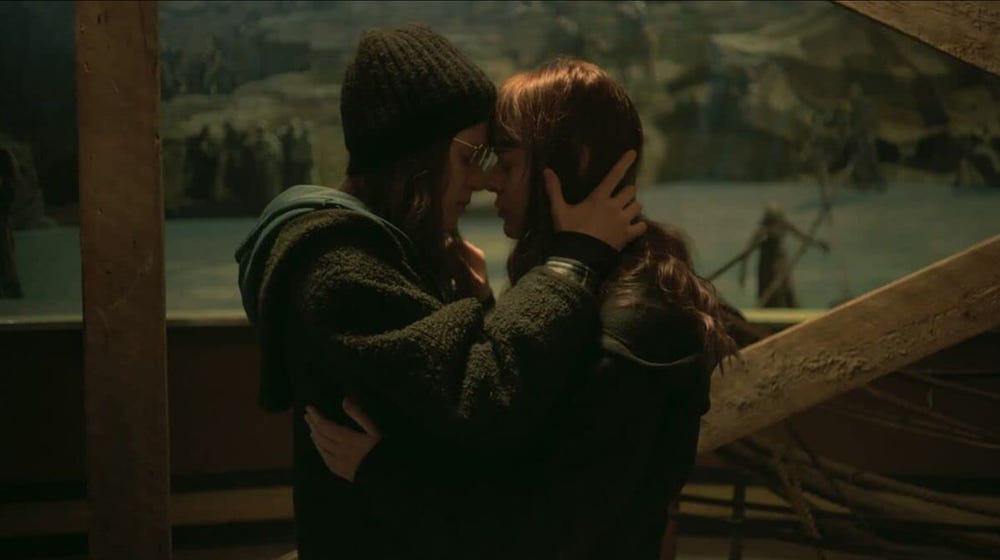you can live forever
Film, 2022, 4 stars
Directed By: Mark Slutsky, Sarah Watts
Written By: Sarah Watts, Mark Slutsky
A highlight of the queer festival season in 2022 was this gorgeously shot, powerful, sad, and often frustrating exploration of young love within the bounds of a religious upbringing. It’s a film that creeps over you slowly, much like the love that grows between our two protagonists. Their love is hopeless, but what do kids care about that? When we see them look back as adults at what they had as kids and realise how life changing it was that we see the true tragedy of it all, but also a glimmer of hope.
Jaime (Anwen O’Driscoll) has to spend time living with her aunt and uncle in a Jehovah’s Witness community after her father’s death and her mother’s nervous breakdown. When she arrives she’s not exactly rebellious, but she is a normal teenager who smokes occasionally, drinks occasionally, wears ripped jeans, and loves rock music (the atmospheric soundtrack is both linked to Jaime’s moods, and used as an indicator of timeline).
Jaime is strong willed, but she’s also open minded. She doesn’t immediately reject the community, but she doesn’t let it brainwash her either. We know she has too many things she wants to achieve with her life to be naturally drawn to this church, but she’s also desperately searching for a meaningful path.
While participating in the rituals, Jaime meets Marike (June Laporte), who has been raised in the Jehovah’s since birth and lost her own mother through excommunication. Children are told to think of their excommunicated relatives as dead, which is an immense, and deeply sad way to understand the destruction of families when people leave their strict communities.
Marike misses her mother, and as she becomes involved with Jaime starts to question her sexuality, but she never questions her beliefs, not for a moment. We are encouraged to empathise with Marike through Jaime’s watchful eyes. It’s a powerful tool for exploring the unfamiliar.
Their attraction is slow burn, but so wholesome in a way. They have so much respect for other – for their differences, for what they each want from their lives. Marike regrets the things she can’t do, but also has complete faith she’ll be rewarded for her sacrifices. Jaime experiments with the idea that her love for Marike might be worth embracing the church, so she tries valiantly to understand.
Jaime finds relief in her friendship with a schoolmate Nathan, a guy who immediately senses Jaime is into girls but just loves to hang with her anyway. It’s an honest, refreshing look at the way kids can be so much more gracious than they’re often given credit for.
Jaime and Marike’s fumbling sexuality is sweet. They fit in a way that neither has felt before with anyone. The differences between them seem unimportant, and we hold out hope for a twist that will keep them together, but we know that it just can’t happen. Marike’s faith cannot be shaken, and Jaime needs to live her life. These two things can’t be reconciled, especially by teenagers so beholden to the adults in their lives who make all the rules.
It is a pleasant surprise when the film doesn’t just end, but hangs around to give us a feeling of what happens in the ensuing years. The final coming together of the lovers is ambiguous, sorrowful, and beautiful all at once. We aren’t given a hard and fast conclusion, but are left to wonder if tlove can really defeat everything. It’s not a happy ending, how could it possibly be? But it’s satisfying. Prepare to be shaken, disturbed, entranced, and moved.



